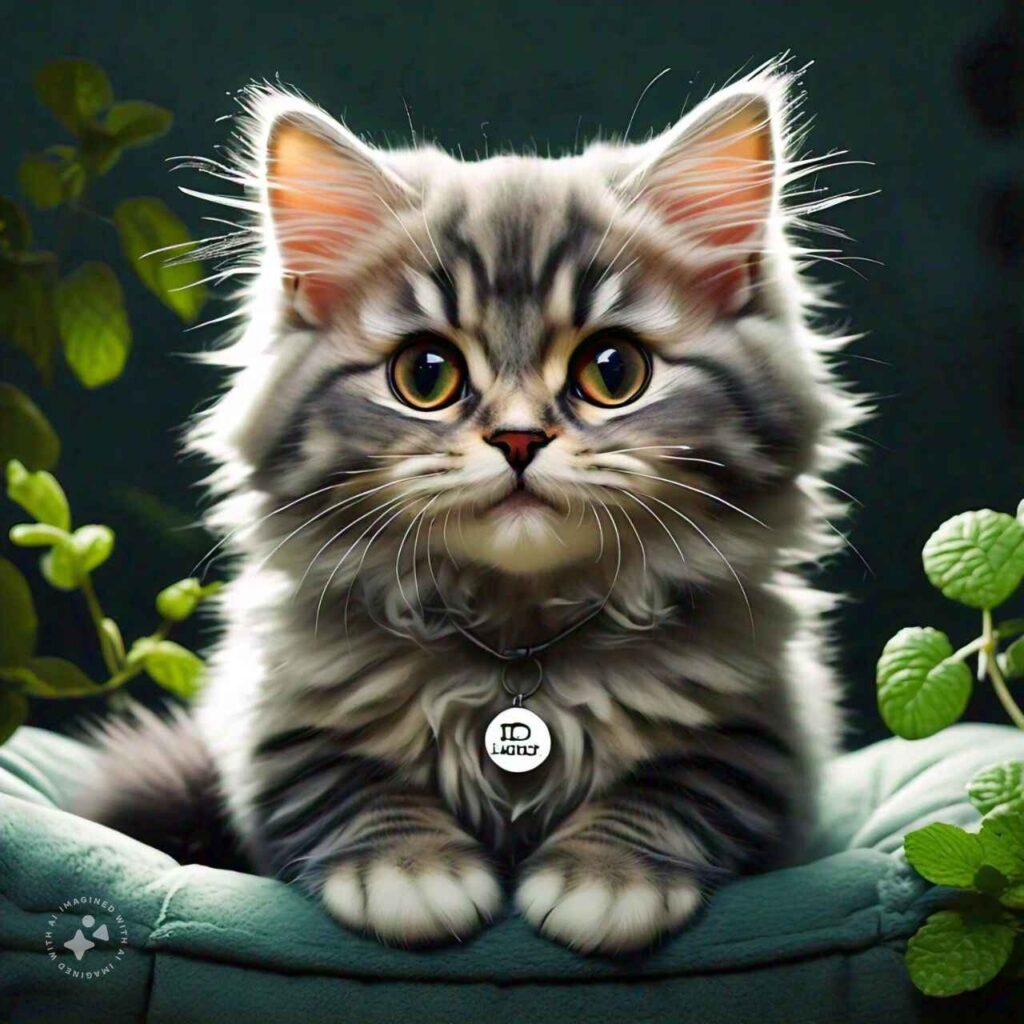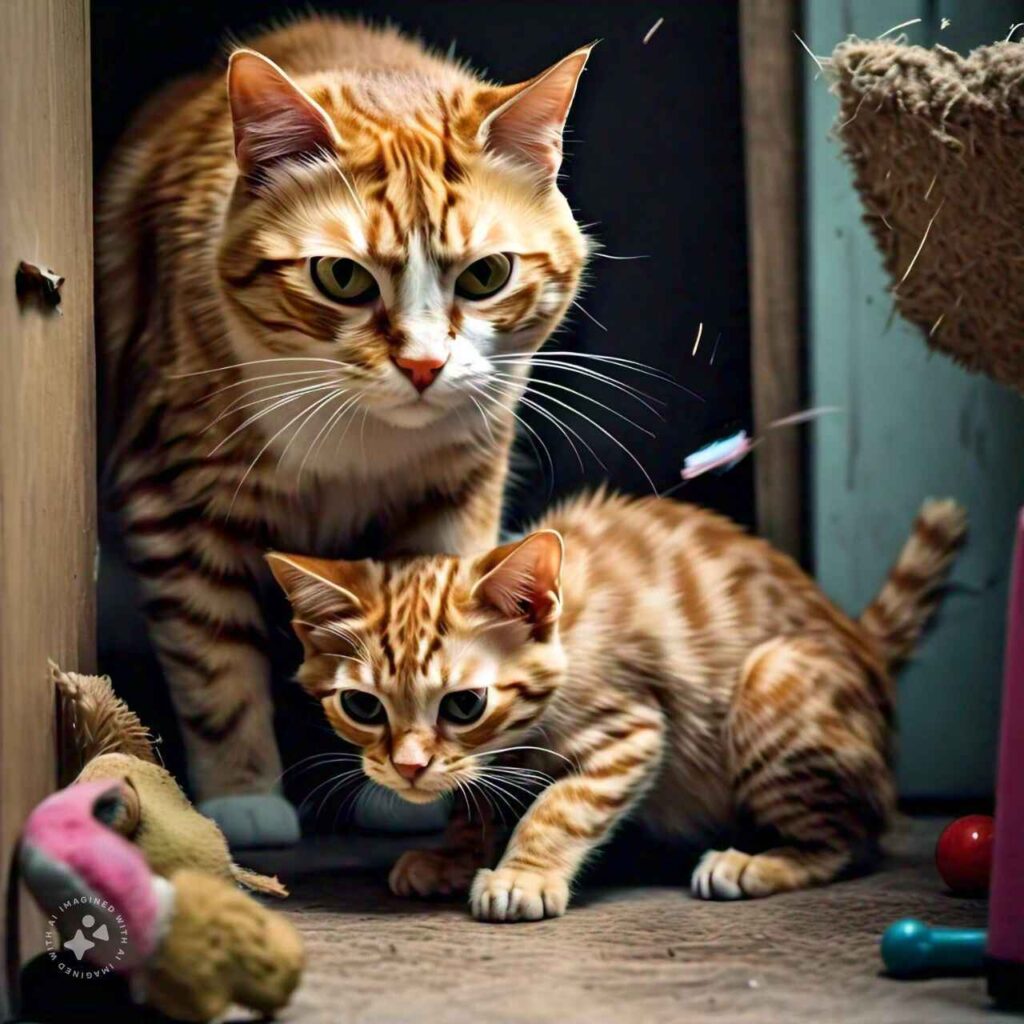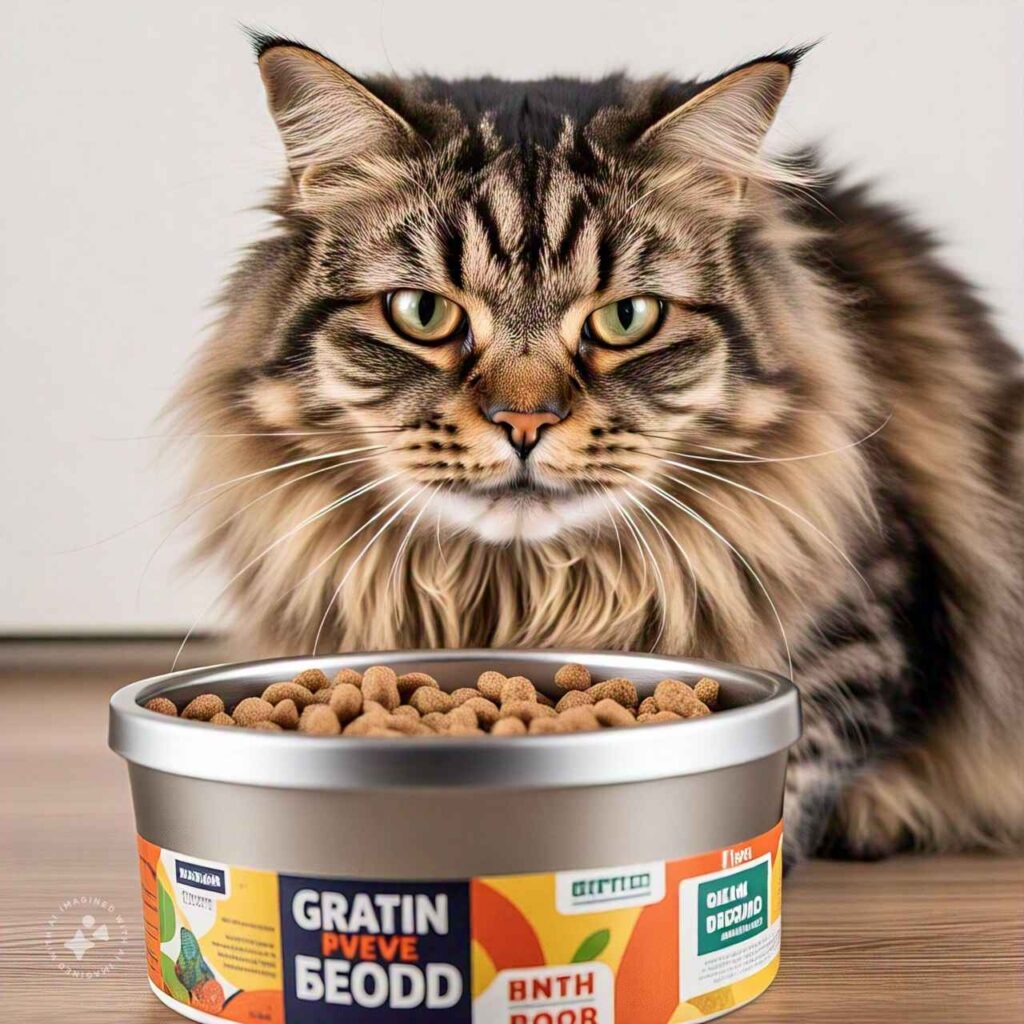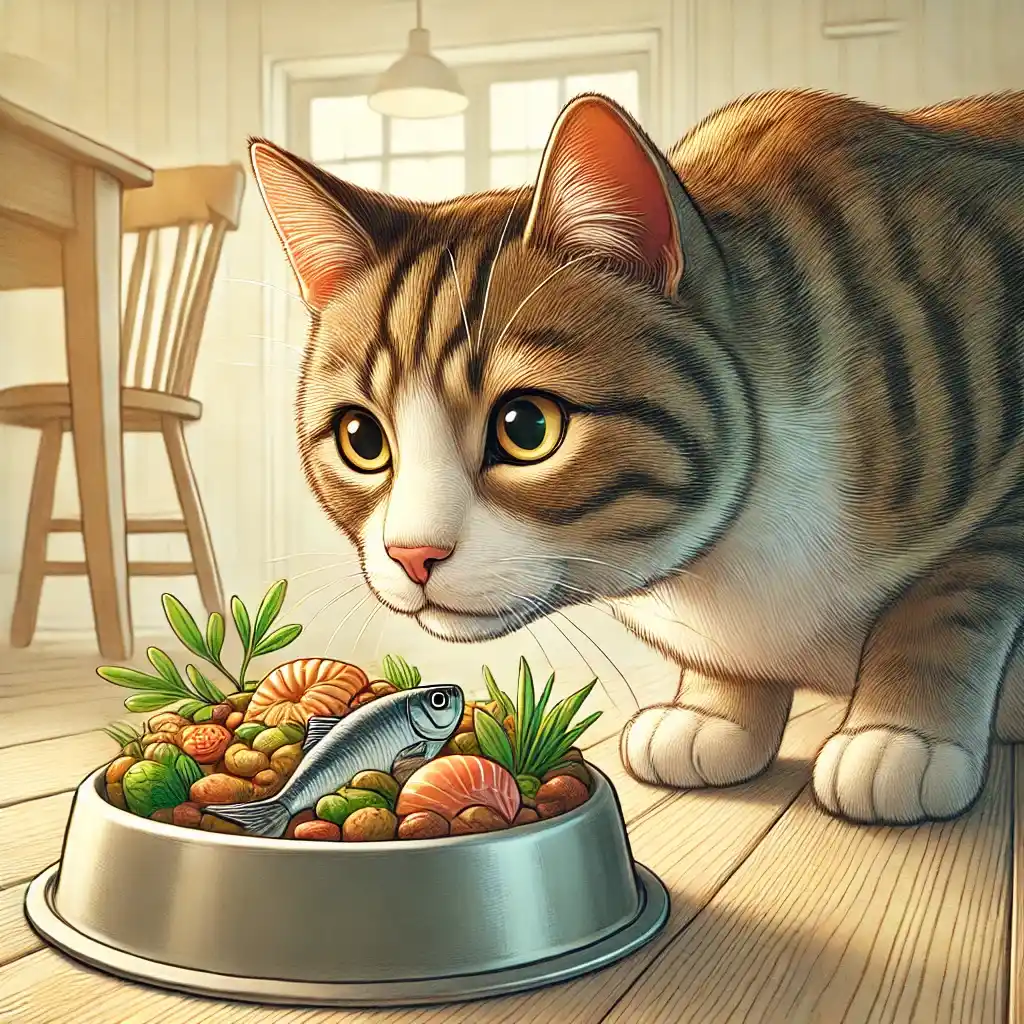As a loving pet owner, there is nothing more important than the health and well-being of your feline companion. If your cat is recovering from surgery, suffering from a chronic illness, or facing a temporary health setback, urgent care cat food is one of the best ways to help them regain strength and recover swiftly. This type of food is specifically formulated to support cats during times of illness or stress, ensuring that they get the nutrition they need to recover faster. In this detailed guide, we’ll explore everything you need to know about urgent care cat food, from why it’s important, to the best brands and how to choose the right food for your cat’s specific needs.
1; Introduction to Urgent Care Cat Food
What is Urgent Care Cat Food?
Urgent care cat food is a specialized type of diet designed to support cats during their recovery from illness, surgery, or injury. This food is formulated with higher concentrations of essential nutrients that can help boost the immune system, restore energy, and promote healing. Whether your cat is recovering from surgery, battling a disease, or simply feeling under the weather, urgent-care cat food can provide the necessary nutritional support to speed up recovery and prevent malnutrition.

What makes urgent care food distinct is that it is generally more palatable, easier to digest, and has higher concentrations of protein and fat compared to standard cat food. Cats that are ill or recovering often experience reduced appetite and difficulty in digesting regular food, making it essential to provide them with food that is both appetizing and nutritionally rich.
Why It’s Important for Your Cat’s Health
When your cat is sick or recovering from an injury, its body requires extra nutrients to rebuild tissue, strengthen the immune system, and maintain energy levels. Regular cat food might not be enough to meet these increased nutritional demands, which is why urgent care cat food is so important.
Urgent care food can provide several critical benefits for your cat’s health:
- Faster recovery: High-quality, nutrient-dense formulas help speed up the healing process.
- Boosts appetite: Illness often diminishes a cat’s appetite, but urgent care food is designed to be more enticing, encouraging cats to eat.
- Prevents further complications: Malnutrition or dehydration can complicate a cat’s condition. Urgent care food helps maintain hydration and prevent further health issues.
- Supports the immune system: A well-balanced formula that contains vitamins, minerals, and antioxidants can help strengthen your cat’s immune system, improving their ability to fight off infections.
When to Use Urgent Care Cat Food
Urgent care food is recommended when your cat is facing health challenges, such as:
- Post-surgery recovery: Cats need additional calories and nutrients to recover after surgery or medical procedures.
- Chronic illness: Conditions such as kidney disease, diabetes, or heart disease often require a specialized diet for managing symptoms and maintaining overall health.
- Gastrointestinal issues: If your cat has digestive problems such as vomiting, diarrhea, or constipation, urgent care food may be easier for them to digest.
- Appetite loss: Cats that are recovering from illness or stress often experience a loss of appetite. Urgent care foods are formulated to encourage eating and provide high levels of nutrients in small portions.
2; Signs Your Cat Needs Urgent Care Food
Recognizing Health Issues in Cats
As a pet owner, it’s important to recognize when your cat is in need of specialized care. Certain signs can indicate that your cat’s health is compromised, and urgent care food may be necessary.
Some of the most common signs that your cat needs urgent care food include:
- Loss of appetite: Cats that are ill or recovering from surgery may stop eating or drinking altogether. If your cat goes more than 24 hours without food, it’s crucial to consult with your vet and consider switching to urgent care food.
- Weight loss: Significant weight loss is a clear sign that your cat is not getting enough nutrition. If your cat has been eating less or is struggling to maintain weight, urgent care food can help restore body mass and strength.
- Vomiting or diarrhea: Cats suffering from gastrointestinal problems, such as vomiting or diarrhea, may find regular food difficult to tolerate. Urgent care food that is easy to digest can help reduce irritation and provide essential nutrients.
- Lethargy or weakness: If your cat seems unusually tired, inactive, or weak, it could be a sign of illness. Urgent care food can provide the energy they need to regain their strength.
- Frequent hiding or withdrawal: When cats are in pain or feeling unwell, they often retreat to a quiet place. If your cat is isolating itself and avoiding interaction, it’s a clear indication that something is wrong.

When to Switch to Urgent Care Cat Food
If your cat shows any of these symptoms, it might be time to switch to urgent care food. However, always consult your veterinarian before making any dietary changes, especially during illness or recovery. Your vet can help determine whether urgent care food is the best option for your cat’s condition.
Sometimes, urgent care food is used only temporarily during a specific recovery period, while at other times, it may become a long-term solution for cats with ongoing health issues. Your vet will be able to guide you on the appropriate course of action.
3; Top Brands of Urgent Care Cat Food
Brand 1: Hill’s Prescription Diet a/d Urgent Care
Hill’s Prescription Diet a/d Urgent Care is a top choice for cats in recovery after surgery or illness. It provides essential nutrition to support healing and overall well-being. It’s designed with high levels of protein, fat, and calories to help promote recovery. Hill’s a/d food is highly palatable, making it a great choice for cats that may have a reduced appetite. The formula is rich in antioxidants to support immune health and comes in both canned and dry options.
Brand 2: Royal Canin Recovery Mousse
Royal Canin is a trusted brand known for its specialized pet food formulas. Their Recovery Mousse is ideal for cats that are recovering from surgery or suffering from a medical condition that affects their appetite. The mousse-like texture is easy to eat, even for cats that may have trouble chewing or swallowing. It’s designed to provide a high level of energy and nutrients that can help your cat regain strength quickly.
Brand 3: Iams Veterinary Formula Recovery
Iams Veterinary Formula Recovery is another excellent choice for cats in need of urgent care. This food contains high-quality protein and essential fatty acids that are perfect for healing tissue and supporting the immune system. It’s also formulated to support healthy digestion, which can be particularly helpful for cats suffering from gastrointestinal issues.

Brand 4: Hill’s Prescription Diet c/d Multicare
Hill’s Prescription Diet c/d Multicare is designed for cats with urinary tract issues, but it’s also a suitable option for stressed or recovering cats. The formula helps manage and prevent urinary blockages and infections while providing key nutrients that support overall health.
Brand 5: Wellness CORE Grain-Free Chicken & Turkey
Wellness CORE offers a grain-free option that is high in protein and low in carbohydrates, making it suitable for cats with food sensitivities or those recovering from illness. The chicken and turkey flavors are highly digestible, providing the necessary nutrients without overwhelming the cat’s digestive system.
4; Key Ingredients to Look for in Urgent Care Cat Food
Nutrients for Recovery
When choosing urgent care cat food, look for the following key ingredients to help with recovery:
- High-quality protein: Protein is essential for muscle repair and tissue regeneration. Look for foods with high levels of easily digestible protein such as chicken, turkey, or fish.
- Omega-3 fatty acids: Omega-3s are beneficial for reducing inflammation, supporting skin and coat health, and boosting overall immunity. These fatty acids are especially important if your cat is recovering from surgery or illness.
- Vitamins and minerals: Key vitamins such as A, C, and E, as well as minerals like zinc, iron, and magnesium, are crucial for immune function, energy metabolism, and overall recovery.
- Digestive enzymes: Cats with digestive issues may benefit from food that contains added enzymes to help with food breakdown and nutrient absorption.
- Electrolytes: For cats recovering from dehydration, food containing electrolytes like potassium, sodium, and chloride can help restore fluid balance.
Ingredients to Avoid
Certain ingredients should be avoided in urgent care food to prevent further health complications:
- Artificial additives: Avoid food with artificial colors, flavors, or preservatives that can upset your cat’s stomach.
- Excessive fillers: Look for food with fewer fillers like corn, wheat, or soy. These ingredients are harder for cats to digest and can contribute to digestive issues.
- By-products: While some by-products are acceptable, it’s best to choose food with high-quality protein sources rather than unspecified meat by-products.
5; How to Transition Your Cat to Urgent Care Food
Gradual Transition Tips
Transitioning your cat to a new diet should always be done gradually to prevent digestive upset. These tips can help you navigate a smooth transition:
- Start slow: Begin by mixing 25% of the new urgent care food with 75% of your cat’s current food. This can assist your cat’s digestive system in getting used to the change.
- Increase the ratio: Over the course of 3-5 days, gradually increase the percentage of the new food while decreasing the old food.
- Monitor your cat: Keep a close eye on your cat’s behavior, appetite, and stool. If you notice any changes in their health, contact your vet.
Monitoring Your Cat’s Health
It’s important to observe how your cat responds to the new food. Keep track of their weight, energy levels, and any changes in their coat or behavior. If your cat seems to reject the food or shows signs of digestive upset, consult your vet for alternative recommendations.

6; Other Considerations When Choosing Urgent Care Food
Food for Specific Conditions
Different health conditions may require specialized urgent care food. Here are some options based on specific conditions:
- Kidney disease: Cats with kidney disease benefit from food that is low in phosphorus and protein to reduce stress on their kidneys.
- Digestive issues: Cats with sensitive stomachs or gastrointestinal disorders may need food that is easy to digest and gentle on the stomach.
- Weight loss: For cats that are underweight or have lost significant muscle mass, a high-calorie, high-protein food is ideal for restoring weight and strength.
Wet vs. Dry Urgent Care Food
When choosing between wet and dry food, consider the following:
- Wet food: Wet food is beneficial for cats with dehydration or difficulty swallowing, as it provides extra moisture and is easier to eat.
- Dry food: Dry food is typically lower in calories but can be a good option for long-term maintenance after recovery.
7;Differince between Urgent Care Cat Food
| Brand | Features | Best For | Form |
|---|
| Hill’s Prescription Diet a/d | High protein and fat, calorie-dense | Cats recovering from surgery or illness | Canned, dry |
| Royal Canin Recovery Mousse | Soft mousse texture, easy-to-eat | Cats with reduced appetite or difficulty eating | Canned mousse |
| Iams Veterinary Formula Recovery | High-quality protein, supports immune function | Cats with recovery needs, especially after surgery | Canned, dry |
| Hill’s Prescription Diet c/d Multicare | Supports urinary tract health, nutrient-rich | Cats with urinary tract issues or recovery needs | Canned, dry |
| Wellness CORE Grain-Free | High in protein, low in carbs, grain-free | Cats with food sensitivities or recovering from illness | Canned, dry |
8;FAQs
What is urgent care cat food?
Urgent care cat food is specially formulated to support cats recovering from surgery, illness, or injury. It provides high protein, fat, and calories to help boost energy, strengthen the immune system, and promote healing. This food is easier to digest and more palatable than regular cat food, making it ideal for cats with reduced appetite.
When should I use urgent care cat food?
Urgent care cat food is recommended for cats recovering from surgery, suffering from chronic illness, or dealing with gastrointestinal issues. It’s also beneficial when cats have a loss of appetite or need extra nutrients for recovery.
What are the signs my cat needs urgent care food?
Signs include loss of appetite, significant weight loss, vomiting, diarrhea, lethargy, or withdrawal. If your cat shows these symptoms, consider consulting your vet and switching to urgent care food to support recovery.
What ingredients should urgent care cat food contain?
Look for high-quality protein (like chicken or turkey), omega-3 fatty acids, vitamins A, C, and E, and electrolytes for hydration. These ingredients help with tissue repair, immune support, and overall recovery.
How should I transition my cat to urgent care food?
Start by mixing 25% of the new food with 75% of the current food, gradually increasing the amount of urgent care food over 3-5 days. Monitor your cat’s response and consult your vet if there are any issues with the transition.
